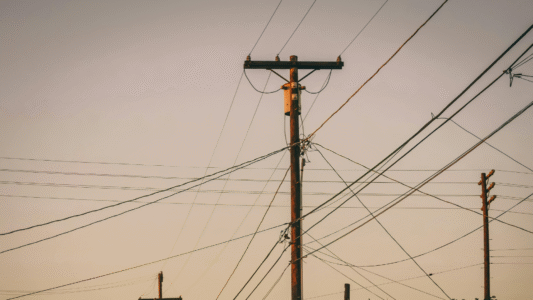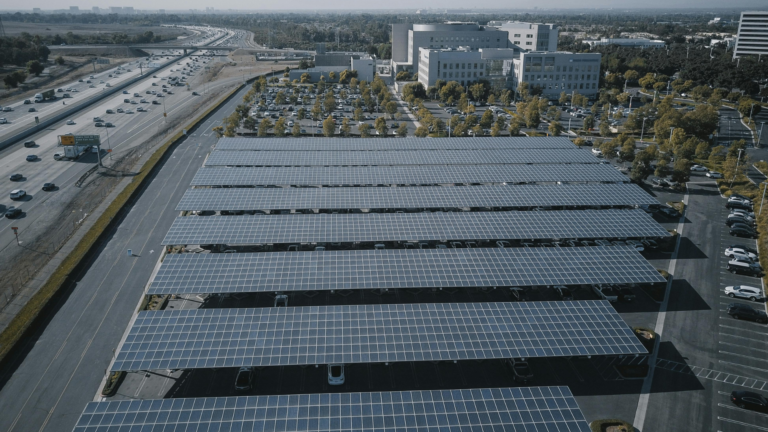Regulatory Developments in Power Distribution Sector: May 16, 2025
Author: PPD Team Date: May 16, 2025

APTEL allows TNERC to revisit pre-2003 tariff for Southern Railway
The Appellate Tribunal for Electricity (APTEL) has ruled that the Tamil Nadu Electricity Regulatory Commission (TNERC) can review a 2001 electricity tariff hike imposed on Southern Railway. The judgment sets aside TNERC’s earlier dismissal and remands the case for a fresh decision within six months.
The case involves a tariff hike under G.O. No. 95 of 2001, which raised rates for Southern Railway’s traction supply from December 2001 to May 2003. TNERC had rejected the railway’s petition in 2016, arguing it had no jurisdiction over tariffs fixed under the 1978 Tariff Act before the Electricity Act, 2003 came into force.
APTEL disagreed, holding that TNERC’s jurisdiction under the 2003 Act includes power to revisit tariffs fixed before the Act’s enforcement date of 10 June 2003. The tribunal clarified that tariff revision includes any post-commission change, regardless of when the original tariff was set.
It also rejected TNERC’s reliance on past High Court judgments, noting those did not expressly prevent the commission from revisiting pre-2003 tariffs. APTEL held that TNERC’s inaction contradicted a 2013 Madras High Court order that had already remanded the issue for reconsideration.
The case now returns to TNERC for a fresh review. The outcome could affect historical dues and tariff treatment for other bulk consumers.
Appeal No. 302 of 2016 | Read the full order here.
DERC approves 7.25% PPAC for BSES Rajdhani for Q3 of FY 2024–25
The Delhi Electricity Regulatory Commission (DERC) has approved a Power Purchase Cost Adjustment Charge (PPAC) of 7.25% for BSES Rajdhani Power Ltd (BRPL) for the period from October to December 2024 (Q3 of FY 2024–25). The approved PPAC apply from 09 May to 08 August 2025.
BRPL had sought approval to levy a differential PPAC of 8.76%, citing increased power purchase costs. The request included 7.94% previously approved by DERC in its tariff order of 30 September 2021 and an ongoing 7.49% PPAC levied from 01 February 2025.
DERC reviewed BRPL’s audited power purchase data, including fixed, energy, and transmission charges, in line with Regulation 134 of the DERC Tariff Regulations, 2017, and Regulation 30 of the Business Plan Regulations, 2023. It excluded other cost components beyond the regulatory scope and computed the actual allowable PPAC for Q3 at 6.80%. After applying the prescribed formula, adding the approved legacy PPAC of 7.94% and deducting the ongoing levy of 7.49%, the Commission approved a net PPAC of 7.25% for the specified quarter.
Petition No. 05/2025 | Read the full order here.
DERC allows BYPL to recover 8.11% PPAC after correcting previous quarter’s error
The Delhi Electricity Regulatory Commission (DERC) has approved a revised Power Purchase Cost Adjustment Charge (PPAC) of 8.11% for BSES Yamuna Power Ltd (BYPL) for the third quarter of FY 2024–25. The PPAC will apply from 09 May to 08 August 2025.
BYPL initially sought approval for a differential PPAC of 7.75% for Q3 (October to December 2024) and also filed a review petition for Q2 (July to September 2024), citing computational errors in the Commission’s earlier order. After scrutiny, DERC accepted BYPL’s claims regarding incorrect treatment of Short-Term Open Access (STOA) credits in Q2 and revised its earlier position.
The Commission recalculated the PPAC for Q3 at 4.20%, excluding cost components not permissible under Regulation 134 of the DERC Tariff Regulations, 2017 and Regulation 30 of the Business Plan Regulations, 2023. After accounting for previously approved PPAC of 7.43% and a provisional levy of 5.95%, DERC initially approved 5.68% for Q3.
Upon correction of the earlier Q2 calculation, DERC added a 2.43% adjustment, bringing the total approved PPAC for Q3 to 8.11%.
Petition No. 07/2025 | Read the full order here.
HERC allows dual source supply for critical services with fixed charge rules
The Haryana Electricity Regulatory Commission (HERC) has approved a framework permitting dual source electricity supply to critical service consumers such as Delhi Metro Rail Corporation (DMRC), hospitals, and public utilities. The decision follows a petition by Dakshin Haryana Bijli Vitran Nigam Limited (DHBVNL) seeking regulatory clarity for such supply arrangements.
The Commission noted that existing supply code regulations did not adequately cover dual sourcing scenarios. DHBVNL had been relying on internal sales circulars since 2012, but sought formal regulation under Sections 45 and 50 of the Electricity Act, 2003.
Under the approved framework, eligible consumers may obtain supply from two independent feeders at 11 kV or higher voltage levels. One feeder will serve as the primary source, while the other will function as standby. Both sources shall not be used simultaneously, and technical interlocks or automatic transfer switches will be required to prevent parallel usage.
Metering will be through a common meter installed after the changeover point. Substation-end meters will log usage separately, and billing will be based on cumulative consumption.
Fixed charges will apply separately for both feeders if the load is reserved at each source, regardless of whether one remains on standby. However, when supply is routed through different bays of the same substation without separate load reservation, it will not qualify as dual sourcing, and only normal fixed charges will apply.
The Commission clarified that the provision applies only to public service entities, subject to technical feasibility and right-of-way availability. Costs for infrastructure and metering will be borne by the consumer.
The petition has been disposed of with these directions.
Case No. HERC/P. No. 72 of 2024 | Read the full order here.
MPERC rejects DISCOMs’ plea on FPPAS recovery shortfall for FY24
The Madhya Pradesh Electricity Regulatory Commission (MPERC) has dismissed a review petition filed by the state’s distribution companies (DISCOMs) and the Madhya Pradesh Power Management Company Ltd (MPPMCL). The petition challenged the True-Up Order for Fuel and Power Purchase Adjustment Surcharge (FPPAS) for FY 2023–24, citing an alleged under-recovery of Rs 2,137.35 crore due to rising power purchase costs.
The DISCOMs had objected to MPERC’s earlier direction to refund Rs 376.28 crore to consumers, arguing that the calculation ignored escalated costs amounting to Rs 3,225.85 crore. They also questioned the lack of a defined procedure for distributing the excess amount to individual consumers.
MPERC upheld its original decision, stating the True-Up Order was based on provisional data and that the audited financials were already addressed in the final Aggregate Revenue Requirement (ARR) for FY 2023–24. The Commission noted that only Rs 11.69 crore in carrying costs remained to be refunded, and this was adjusted in its ARR True-Up Order dated March 28, 2025.
On the matter of the FPPAS formula, MPERC stated that the methodology is in line with central government norms and cannot be altered through this petition. The Commission advised DISCOMs to present any concerns when regulatory amendments are proposed by the Ministry of Power.
Review Petition No. 01 of 2025 | Read the full order here.
GERC allows partial review of Torrent Power’s FY19 tariff order, rejects Ind AS claim
The Gujarat Electricity Regulatory Commission (GERC) has partially upheld Torrent Power Limited’s (TPL) review petition, correcting certain errors in its March 2020 tariff order for FY 2018–19. TPL’s request to revise trued-up revenue based on Ind AS 115 accounting was rejected.
GERC accepted TPL’s correction on the power purchase cost from its generation arm TPL-G (APP). Scheduled energy had been incorrectly matched with actual generation costs. The revised figure increased the cost from Rs 1,182.53 crore to Rs 1,199.93 crore, raising the total power purchase cost for Ahmedabad to Rs 4,886.04 crore and updating the distribution loss gain to Rs 66.76 crore.
The Commission dismissed other requests, including revision of wheeling losses and cross-subsidy surcharge (CSS), stating these were resolved in the 31 March 2022 true-up order. It upheld the Rs 2.11/kWh ceiling on fuel and power purchase adjustment (FPPPA) as valid and temporary.
GERC also rejected TPL’s plea to restate FY 2018–19 revenue under Ind AS 115. It cited Note 26 of the audited financials and held that no apparent error had been shown.
The order results in minor financial adjustments, with broader claims on revenue treatment and regulatory ceilings left unchanged.
Petition No. 1869 of 2020 | Read the full order here.
GERC corrects TPL’s power purchase cost for FY19, rejects revenue revision plea
The Gujarat Electricity Regulatory Commission (GERC) has partially upheld Torrent Power Limited’s (TPL) review petition related to its March 2020 tariff order for FY 2018–19, approving a key correction in power purchase cost linked to scheduled energy.
GERC revised the approved cost of power purchased from TPL-Generation (APP) from Rs 1,182.53 crore to Rs 1,199.93 crore. This correction was based on the use of scheduled energy (2,587.41 MUs), in line with the post-FY 2017–18 separation of scheduling. The aggregate revenue requirement (ARR) for TPL’s Surat distribution area was revised to Rs 2,338 crore.
Other reliefs sought by TPL were rejected. These included revisions to wheeling losses, CSS for HTMD–Metro consumers, and inconsistencies in fuel and power purchase adjustment (FPPPA) directions. GERC noted these had already been addressed in the 31 March 2022 truing-up order.
The Commission also dismissed TPL’s request to revise its revenue figure for FY 2018–19 based on Ind AS 115 accounting. It held that the revenue considered, Rs 2,322.92 crore, was drawn from Note 29 ofthe audited accounts and did not merit revision.
Further, GERC declined to modify the bifurcation of Rs 113.62 crore related to past gap recovery, stating that the analysis was based on TPL’s submissions.
Petition No. 1870 of 2020 | Read the full order here.
GERC dismisses Torrent Power’s plea on Ind AS 115 revenue adjustments
The Gujarat Electricity Regulatory Commission (GERC) has issued a final order in Petition No. 1871 of 2020, rejecting Torrent Power Limited’s (TPL) request for rectification of its 31 March 2020 tariff order. The petition raised concerns over revenue recognition and the treatment of past gap recovery under FY 2018–19 accounts.
TPL had argued that the Commission’s reliance on Note 26 of its audited financials, without considering Note 41 detailing Ind AS 115 adjustments, resulted in the erroneous inclusion of provisional revenue of Rs 216.60 crore. This allegedly understated the revenue gap. TPL also contested the bifurcation of Rs. 1.70 crore as recovery of past gaps, asserting that no such detail had been provided.
GERC held that the revenue figure was verified from audited accounts and consistent with regulatory norms. It stated that the petitioner had not demonstrated any error apparent on record. Regarding the past gap bifurcation, the Commission clarified that the figures were derived from data submitted by TPL, even if not explicitly stated.
The petition was dismissed on 12 May 2025, with the Commission maintaining a trued-up surplus of Rs 5.41 crore for FY 2018–19. The order reaffirmed that review petitions cannot be used to seek a re-evaluation of previously adjudicated matters.
Petition No. 1871 of 2020 | Read the full order here.
For more regulatory updates, read the latest orders covered on Power Peak Digest: Energy Regulatory Updates – Power Peak Digest
Featured photograph is for representation only.


